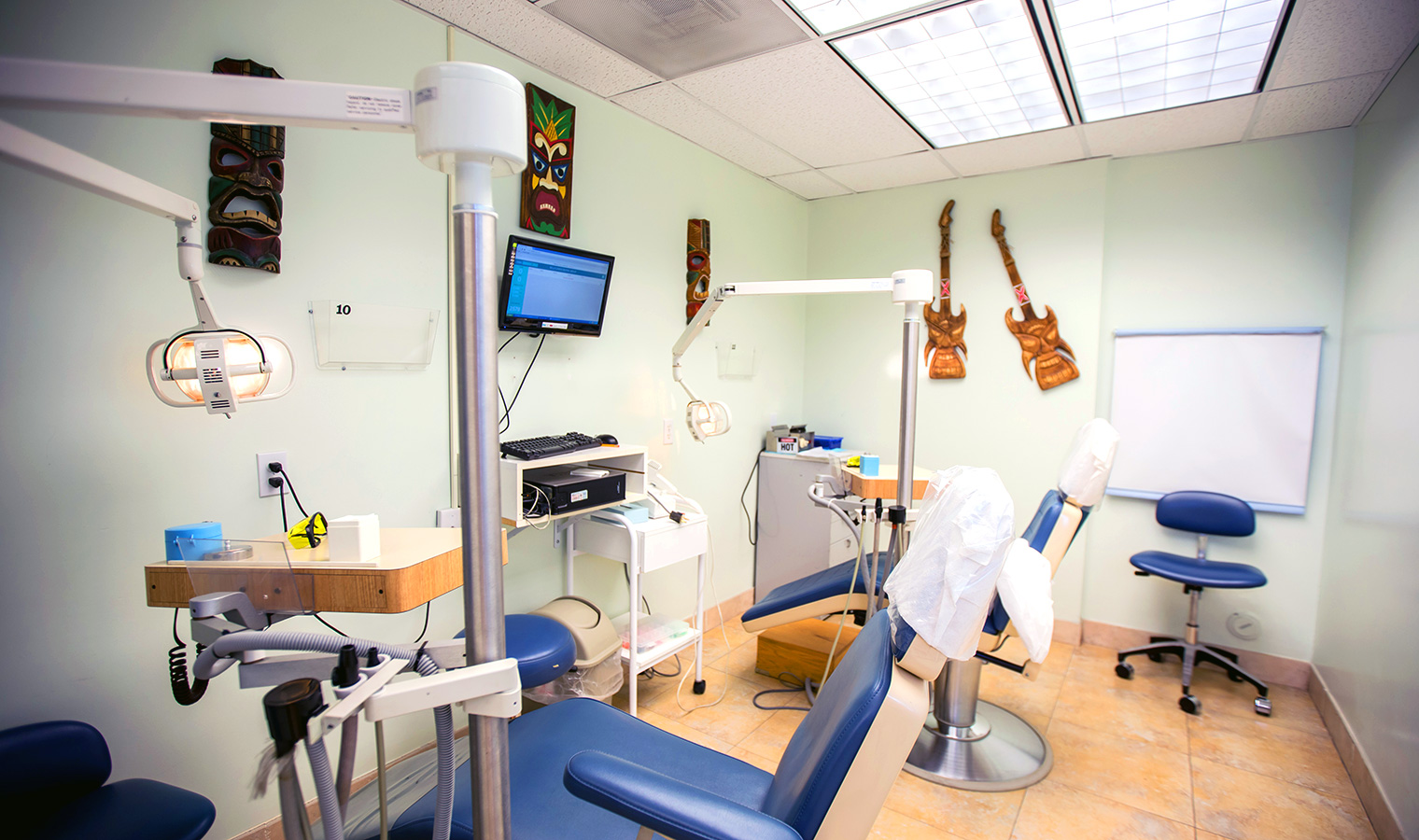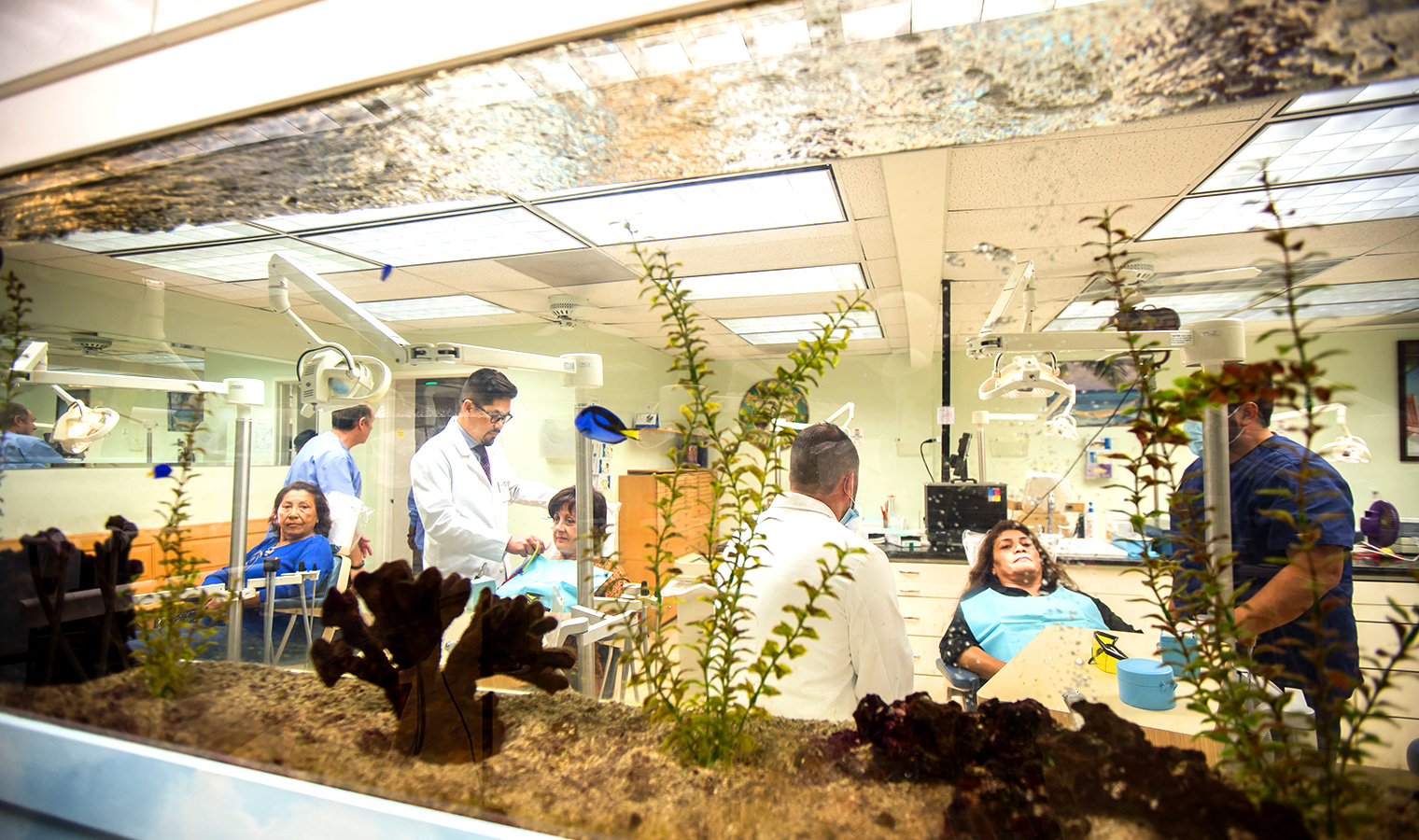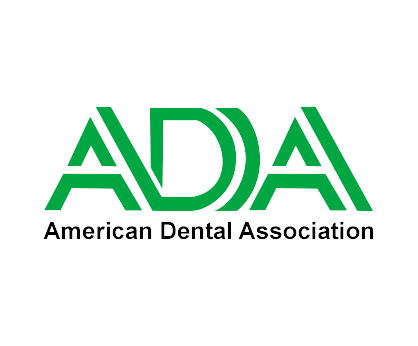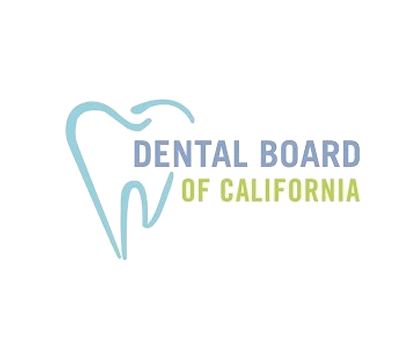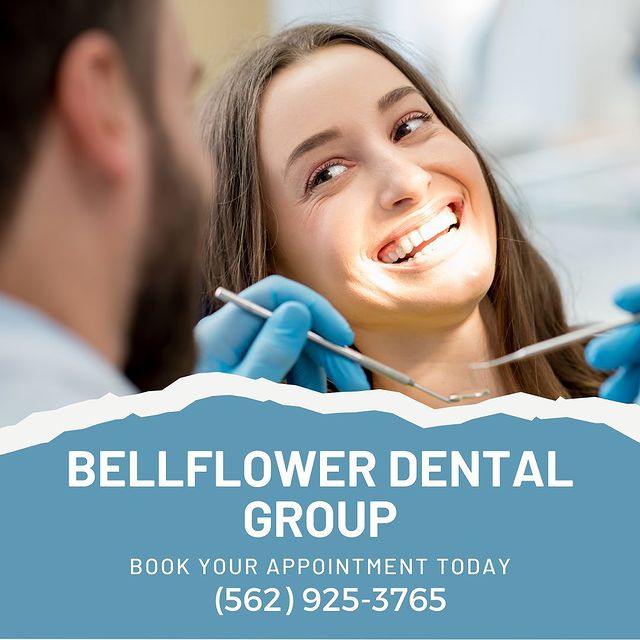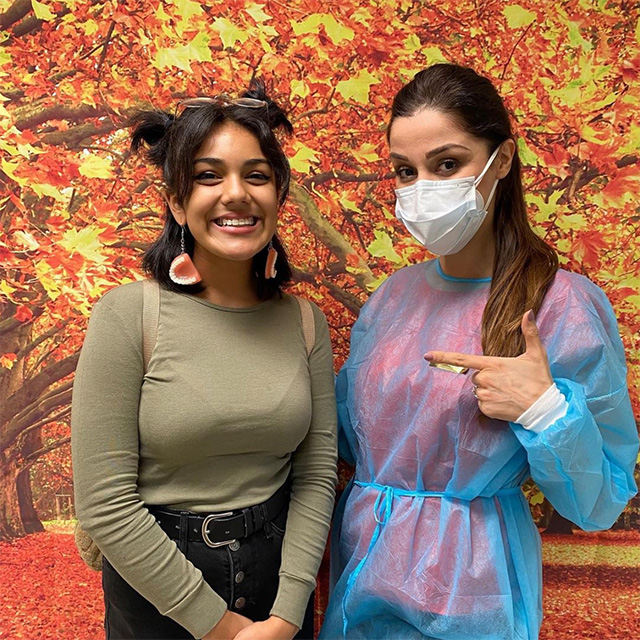Does mouthwash work? Depending on which kinds you use, mouthwash can help you maintain healthy teeth and a happy smile.
Hopefully, it’s second nature by now to grab a bottle of Listerine or Act mouth rinse from the supermarket or pharmacy once you notice you’re running low. You gargle with a mouthful twice a day during your regular dental hygiene routine, and you replace your bad breath for a sharp minty freshness. If using a mouthwash is part of your dental care habits at home, that’s excellent!
Our dentists and hygienists generally recommend rinsing your mouth with one once or twice a day, along with your regular hygiene routine. While using them every day can improve your oral health, they shouldn’t be used as a substitute for good brushing and flossing. Instead, rinses give your teeth and gums an additional boost to better help your smile protect itself.
Additionally, for how well-known it is, many people don’t understand how mouthwashes work. They also don’t realize that not all rinses are made equal, and your smile’s health and even appearance can change depending on which one you use. When patients ask us what the best mouthwash is, we tell them that the answer depends on what they’re hoping to accomplish by using it. There is more than one type of mouthwash, and each with a variety of different ingredients that can change how effective it is for your smile’s health:
Cosmetic
Cosmetic mouthwashes freshen up bad breath and remove that unpleasant taste in your mouth when you first wake up in the morning. They don’t have any health advantages, but they can be quite helpful when meeting up with friends and family or working face-to-face with your colleagues.
Therapeutic
Therapeutic rinses are the mouthwashes that strive to make your smile healthier. Most tackle and kill oral bacteria and dental plaque, giving your brushing and flossing routine an extra boost. By removing the final cavity-causing stragglers, these rinses help fight halitosis or chronic bad breath), tooth decay, and gum disease.
However, other therapeutic rinses take on more specialized problems. For example, prescription “magic mouthwash” is designed for oral sores, including ones from oral thrush, cancer, infections, and autoimmune diseases. Some rinses can instead whiten your teeth. Most mouthwashes contain one or more of the following ingredients to help you make your teeth and gums brighter and healthier:
Fluoride
Peroxide
Cetylpyridinium chloride
Essential oils
Chlorhexidine
Fluoride is a dentist’s best friend as it can bolster teeth’s natural defenses: the hard enamel surface. This mineral is also often used as an additive in communities’ local water supply for passive strengthening of residents’ teeth, but rinses have been shown to be beneficial.
Hydrogen peroxide is often included in whitening mouthwashes to help brighten up your teeth. The amounts used aren’t strong enough to give you a complete smile makeover and remove a decade of stains and yellowing like a professional teeth whitening can. However, using a whitening rinse after you’ve brushed and flossed can gradually lighten your smile to remove dental discoloration.
Cetylpyridinium chloride works to both clear up bad breath and kill oral bacteria. Essential oils like eucalyptus, thyme, and peppermint also work to freshen up your breath in addition to their antibacterial and antifungal abilities. Chlorhexidine works to fight against dental plaque rather than oral bacteria. However, in addition to reducing plaque on your teeth, it can also help to control gingivitis.
The alcohol used in most rinses can dry out the mouth and make it difficult for you to produce enough saliva. Saliva is your smile’s natural defense against plaque and oral bacteria, and a thirsty mouth can make it so much easier for gingivitis and dental decay to form. Dry mouth is also a common problem in patients with diabetes. If you have chronic dry mouth, you should look into getting a mouthwash for dry mouth.
Mouthwash and Your Young Child
Mouthwashes contain high amounts of fluoride and alcohol that shouldn’t be ingested in large quantities by anyone, young or old. However, young kids often struggle to rinse their mouths properly without swallowing until they are 6 or 7 years old. Pediatric dentists and the American Dental Association recommend that children under the age of 6 not use a mouth rinse of any kind, cosmetic, therapeutic, or otherwise.
How can I strengthen my child’s teeth? While fluoride rinses may be out, you can give your young one fluoride toothpaste to give their smile some extra protection against tooth decay. You should be cautious in how much you give your child and closely supervise their brushing routine. Children between 3 and 6 years old can use a pea-sized amount on their toothbrushes. If they’re under 2 years old, you should only use a smear on their toothbrush because they don’t know how to spit. You should also make sure to tilt their heads and let the toothpaste dribble into the sink or a washcloth.
The Consequences of Poor Dental Hygiene
Without giving your hygiene routine an extra boost with mouthwash, you run the risk of developing several oral health problems, from tooth decay to gingivitis. These issues can start relatively mild, with many people ignoring the warning signs because they’re so discreet. However, they can quickly build up and create much worse problems for both you and your smile. At its worst, poor hygiene habits even lead to tooth loss.
Tooth Decay
When dental plaque is left to build up, the oral bacteria and acids in them start to attack your teeth. Early tooth decay appears only as white surface spots as plaque and bacteria work to weaken your enamel. However, once a cavity forms, you can’t make it go away with fluoride toothpastes and mouth rinses. A cavity is a physical pit in the tooth, and that hole won’t fill itself. You’ll need to see one of our Bellflower dentists for professional treatment to prevent bacteria from reaching deeper into the tooth’s softer inner tissues below. Besides a visible hole in the surface, common symptoms of this later-stage tooth infection include:
White tooth spots darkening
Toothache, which can come and go
Tooth sensitivity
Halitosis
Pain when biting down or chewing
What will happen if a cavity is left untreated? As decay extends further towards the tooth’s center, it will eventually attack the dental pulp. The pulp is both the central nervous system and heart of a tooth, running down to the root’s tip and containing the blood vessels and nerves keeping it alive. These tissues getting attacked is what causes a toothache. If enough of the pulp becomes diseased, the tooth may die and require extraction to prevent infection from spreading to the rest of your smile.
Gingivitis and Gum Disease
Gingivitis is only the first stage of gum disease, and it can appear in as few as three days of forgetting to brush or floss. As plaque builds up on your teeth, it also can spread down to the roots and begin infecting the gum tissues. With periodontal disease, it’s always better to catch and treat it as early as possible. What are some of the early warning signs of periodontal disease?
Red, angry gums
Gum pain and tenderness
Puffy and swollen gums
Halitosis
Tooth sensitivity
Bleeding gums
Once gum disease progresses to periodontitis, the gums start pulling away from your teeth and receding. Deep pockets form that can trap more food, plaque, and bacteria. The connective ligaments and jawbone supporting your teeth also become put under attack, even as pockets of pus develop in the gum tissues surrounding your tooth. Your teeth become loose without enough foundation to anchor them, and your bite changes as some teeth drift out of position. Eventually, your teeth will fall out on their own if they’re not extracted before then.
However, if caught in the gingivitis stage, gum disease can be reversed entirely. This early, your gum tissues are only inflamed but haven’t been destroyed. You can return them to a healthy pink by removing the plaque and bacteria trapped and hardened below. This requires at least two weeks of consistent brushing and flossing. You also don’t want to forget rinsing with a good mouthwash to make sure no oral bacteria slip past your defenses.
Does Oral Health Affect Overall Health?
Our mouths aren’t isolated to themselves but are a small part of a more extensive system that makes up the body. Once cavities and gum disease become severe enough, oral bacteria won’t stay contained in the mouth. It will instead enter the bloodstream and spread to the rest of your body. This can have a significant impact over time. Patients with poor oral hygiene habits are at higher risk for endocarditis, heart disease, stroke, pneumonia, and diabetes. It can also potentially lead to complications during pregnancy.
If you have any questions about your dental hygiene or health, you can call our Bellflower dental office at (323) 486-6579. We’re happy to help our patients however we can.
